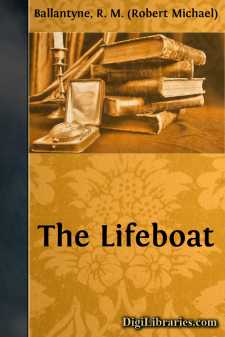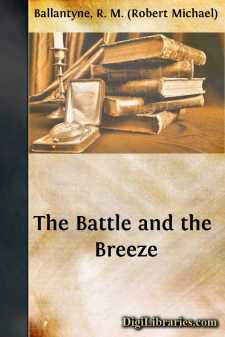Categories
- Antiques & Collectibles 13
- Architecture 36
- Art 48
- Bibles 22
- Biography & Autobiography 813
- Body, Mind & Spirit 142
- Business & Economics 28
- Children's Books 15
- Children's Fiction 12
- Computers 4
- Cooking 94
- Crafts & Hobbies 4
- Drama 346
- Education 46
- Family & Relationships 57
- Fiction 11828
- Games 19
- Gardening 17
- Health & Fitness 34
- History 1377
- House & Home 1
- Humor 147
- Juvenile Fiction 1873
- Juvenile Nonfiction 202
- Language Arts & Disciplines 88
- Law 16
- Literary Collections 686
- Literary Criticism 179
- Mathematics 13
- Medical 41
- Music 40
- Nature 179
- Non-Classifiable 1768
- Performing Arts 7
- Periodicals 1453
- Philosophy 64
- Photography 2
- Poetry 896
- Political Science 203
- Psychology 42
- Reference 154
- Religion 513
- Science 126
- Self-Help 84
- Social Science 81
- Sports & Recreation 34
- Study Aids 3
- Technology & Engineering 59
- Transportation 23
- Travel 463
- True Crime 29
The Lighthouse
Categories:
Description:
Excerpt
The Rock.
Early on a summer morning, about the beginning of the nineteenth century, two fishermen of Forfarshire wended their way to the shore, launched their boat, and put off to sea.
One of the men was tall and ill-favoured, the other, short and well-favoured. Both were square-built, powerful fellows, like most men of the class to which they belonged.
It was about that calm hour of the morning which precedes sunrise, when most living creatures are still asleep, and inanimate nature wears, more than at other times, the semblance of repose. The sea was like a sheet of undulating glass. A breeze had been expected, but, in defiance of expectation, it had not come, so the boatmen were obliged to use their oars. They used them well, however, insomuch that the land ere long appeared like a blue line on the horizon, then became tremulous and indistinct, and finally vanished in the mists of morning.
The men pulled “with a will,”—as seamen pithily express it,—and in silence. Only once during the first hour did the big, ill-favoured man venture a remark. Referring to the absence of wind, he said, that “it would be a’ the better for landin’ on the rock.”
This was said in the broadest vernacular dialect, as, indeed, was everything that dropped from the fishermen’s lips. We take the liberty of modifying it a little, believing that strict fidelity here would entail inevitable loss of sense to many of our readers.
The remark, such as it was, called forth a rejoinder from the short comrade, who stated his belief that “they would be likely to find somethin’ there that day.”
They then relapsed into silence.
Under the regular stroke of the oars the boat advanced steadily, straight out to sea. At first the mirror over which they skimmed was grey, and the foam at the cutwater leaden-coloured. By degrees they rowed, as it were, into a brighter region. The sea ahead lightened up, became pale yellow, then warmed into saffron, and, when the sun rose, blazed into liquid gold.
The words spoken by the boatmen, though few, were significant. The “rock” alluded to was the celebrated and much dreaded Inch Cape—more familiarly known as the Bell Rock—which being at that time unmarked by lighthouse or beacon of any kind, was the terror of mariners who were making for the firths of Forth and Tay. The “something” that was expected to be found there may be guessed at when we say that one of the fiercest storms that ever swept our eastern shores had just exhausted itself after strewing the coast with wrecks. The breast of ocean, though calm on the surface, as has been said, was still heaving with a mighty swell, from the effects of the recent elemental conflict.
“D’ye see the breakers noo, Davy?” enquired the ill-favoured man, who pulled the aft oar.
“Ay, and hear them, too,” said Davy Spink, ceasing to row, and looking over his shoulder towards the seaward horizon.
“Yer een and lugs are better than mine, then,” returned the ill-favoured comrade, who answered, when among his friends, to the name of Big Swankie, otherwise, and more correctly, Jock Swankie....












